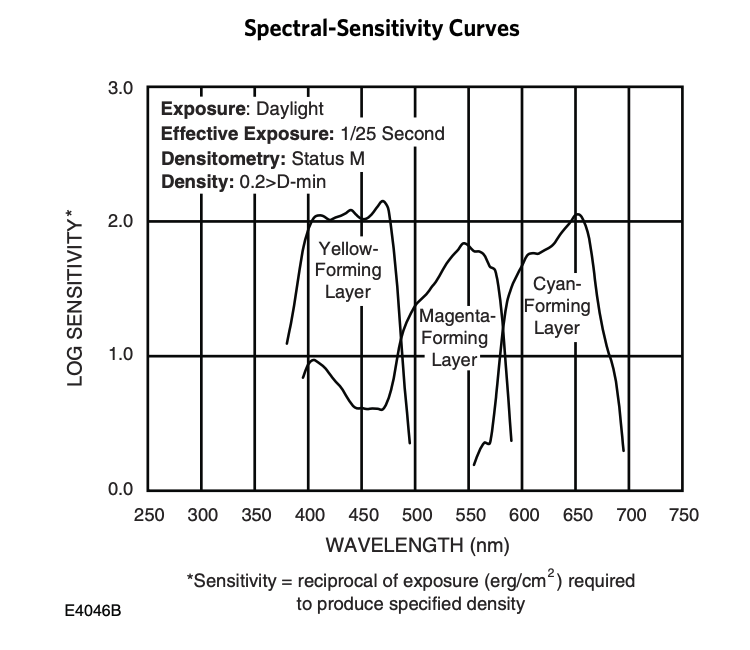I know that digital sensors have filters that filter out UV and IR light and thus do not require UV filters, but what about film? Are IR or UV filters required when shooting film?
6 Answers
"Required" is probably a bit of an overstatement, but they are certainly more useful for film shooting.
The exact effects that UV have on your film photographs will depend largely on what film you're using, and the conditions under which you shoot. From the Wikipedia article UV filter:
Historically, some photographic films were sensitive to UV light, which caused haziness or fogginess, particularly with a blue hue. However, newer photographic film and digital cameras are highly insensitive to UV wavelengths.
The light-sensitive goodies in photographic film are naturally only sensitive to ultraviolet, violet, and blue light. These blue-only-sensitive films yield images that sometimes appear strange. Red objects like lipstick lips and rouged cheeks reproduce dark gray, maybe even black. Photo scientists learned to add dye to the film emulsion. These change the color of silver salts, forcing them to absorb green and red light. First came orthochromatic (blue & green sensitive), followed by panchromatic (red – green – blue sensitive). Such treated films never lose their sensitivity to the blue regions of the spectrum.
Under ordinary conditions, the fact that films are highly sensitive to UV is of no consequence. This is because most camera lenses are made of glass. Glass blocks a high percentage of the UV energy. There are situations when a UV filter can be quite helpful. We are talking about the specialty of imaging objects that exhibit fluorescence when illuminated with UV light. Additionally, the case of mounting a UV filter when doing high-altitude aerial photography. This is because, at high altitude, the air that normally absorbs UV is scant.
In everyday photography, mounting a UV filter works to cut the distant haze present in mountain vistas. Let me add, the UV filter is not effective for distances under several miles.
In recent times the UV filter has been pushed as insurance against accidental scratching and other perils. This concept gives peace of mind - however it mainly serves to line the pockets of suppliers of camera paraphernalia.
Modern digital cameras are less susceptible to the effects of UV energy. These too use glass lenses. Plus, the protective cover glass that overlays the image sensor blocks UV and IR radiation.
Let me add, good filters must be optically flat. From a technical viewpoint, making an optically-flat filter is quite difficult. In other words, we mount filters only when the benefit outweighs the bad.
-
\$\begingroup\$ This should be the "correct" answer as it explains the why in detail. \$\endgroup\$ Commented Feb 24, 2021 at 22:15
I bought a used Minolta with UV filters on both lenses. One day while shooting, I took it off half way into a roll of 200 speed film. The shots were super sketchy after that, so if you are shooting outside in bright sun with film, I would recommend it. But, that's just what I think — could be different with different film and different cameras.
I've shot film for 30 years and never used one. If they were required, I'd have noticed by now.
If you want film photos of bluebells to actually look blue instead of purple then yes, UV filters are... if not necessary then at least useful for film photography. Film is sensitive to UV, digital cameras are not.
Most films are still somewhat sensitive to UV light. You can search for the film's PDF data sheet to find the spectral sensitivity curves.
For example, the Kodak Ektar 100 data sheet shows there is still some sensitivity to UV (everything under 400nm):


